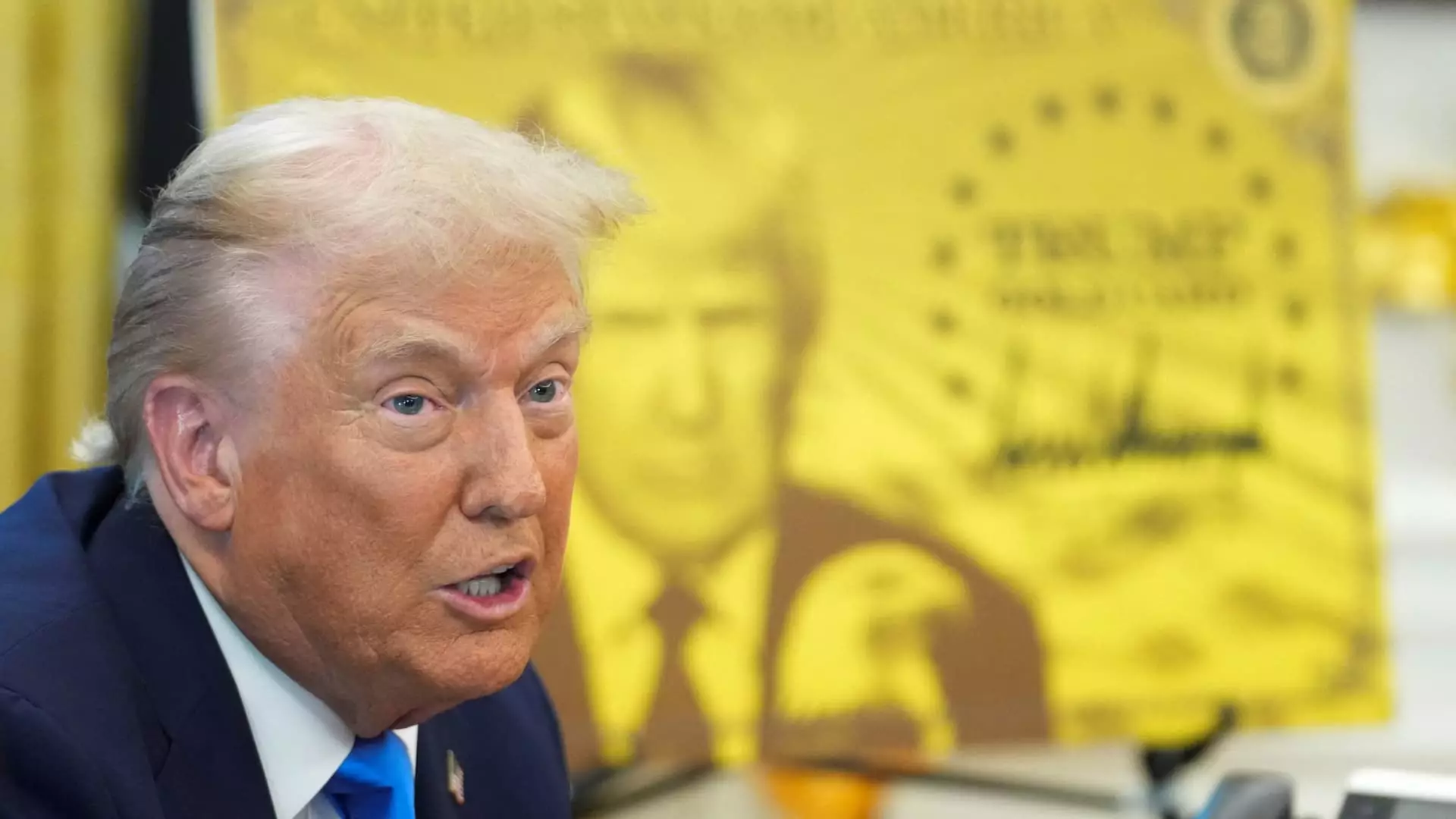In an era where technological innovation is the backbone of global competitiveness, President Trump’s recent announcement to impose a $100,000 annual fee on H-1B visas signals more than just policy tightening; it highlights a fundamental shift in American priorities. While the administration claims the move aims to protect American workers, it risks alienating the very industries that drive economic growth and global influence. The decision is a glaring example of mixed signals — rhetoric of strengthening domestic employment paired with actions that threaten to decimate vital sectors. Especially for the technology industry, which has historically thrived on the infusion of talent from abroad, such measures could be the equivalent of shooting oneself in the foot.
This policy change not only disrupts the natural flow of talent but also raises questions about the long-term strategic vision of the United States. Is protecting American jobs at the expense of innovation and global leadership? Or is this an insular approach that underestimates the importance of diversity and international collaboration? The answer leans towards a dangerous form of nationalism that undermines the interconnectedness required for a thriving technological ecosystem. For many companies, the H-1B program is a lifeline, an ethical way to source skilled labor driven by merit, not merely cheap foreign labor. Cutting it off risks turning America into a technological backwater, stifling the very growth that generates prosperity for all citizens.
Corporate America’s Silent Protest and Rising Uncertainty
It is revealing how major corporations like Amazon, Microsoft, JPMorgan Chase, and others have responded to this policy shift. Rather than openly opposing the move, they have issued somber advisories to their foreign-born employees, urging them to stay put or return home if outside the U.S. These are companies with deep roots in the global digital economy, and their cautious responses reflect both pragmatic survival strategies and subtle resistance to a misguided policy that threatens their workforce ecosystems. These corporations are essentially trying to mitigate damage, but the underlying message is clear: the U.S. is potentially severing vital international ties that fuel innovation.
The private sectors most dependent on high-skilled immigration are already feeling the squeeze, as fears of visa denials and skyrocketing fees loom large. This uncertainty hampers business planning, disrupts project timelines, and risks losing a competitive edge in the relentless race for technological excellence. In a broader sense, it reveals an uncomfortable truth: political decisions are increasingly divorced from economic realities. Governments that fail to prioritize talent and global interconnectedness are inadvertently sabotaging their own economic future in the digital age.
International Ripples and Humanitarian Concerns
The repercussions extend beyond American borders. Countries like India and South Korea are watching these developments with a mix of concern and strategic recalibration. For nations whose economies and labor markets are intertwined with the U.S., these visa restrictions threaten to destabilize industries and displace thousands of professionals. India, which supplies a significant portion of the tech talent pipeline via the H-1B program, expressed apprehension over the humanitarian impact—families torn apart and careers disrupted. This isn’t merely a political move; it’s a human crisis buried within economic policy.
Furthermore, this shift toward protectionism echoes the broader trend of retreat from globalization—a stance that is ultimately short-sighted. The world’s most innovative sectors have historically thrived on cross-border collaboration and diverse talent pools. Dismantling this system risks isolating America from the global intellectual community it once led. Instead of nurturing an environment where talent can flourish, these policies may foster resentment, retaliation, and a decline in international goodwill.
The Future of American Innovation Is at a Crossroads
As the debate rages, one thing is painfully clear: America’s reliance on high-skilled immigrant workers is a strategic asset, not a vulnerability. Imposing prohibitive costs and uncertainty on legal avenues for talented professionals only weakens the nation’s competitive edge. History shows that the United States has the capacity to adapt and lead; however, it requires a nuanced understanding that innovation is inherently global. The future of American technological dominance does not lie in closing doors, but in welcoming diverse minds and fostering an inclusive environment where talent, regardless of origin, can contribute to shared prosperity.
The real tragedy emerges when nationalism and short-term political gains overshadow the long-term vision needed to maintain global leadership. If the country ignores the lessons of the past — that progress stems from openness, inclusivity, and innovation — it risks becoming a fractured, less influential version of itself. The current policies threaten not only the economic stability of the tech giants but also the global stature of the United States as a beacon of progress. The question remains: will the nation choose the path of inward-looking protectionism or embrace its historical role as a magnet for talent and innovation?


Leave a Reply